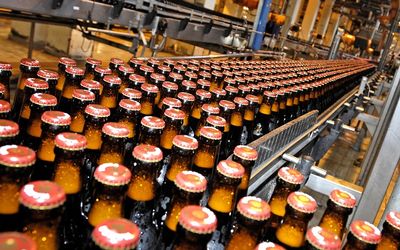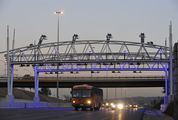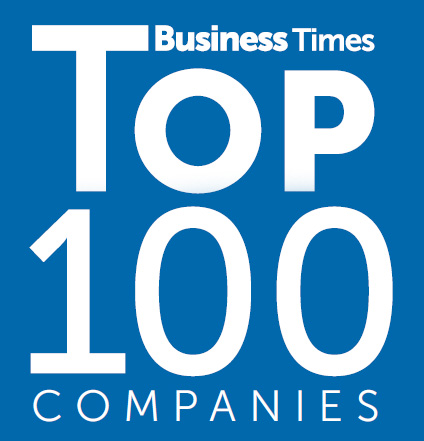SABMiller forges closer Coca-Cola ties
by Nick Hedley,
2014-11-28 07:15:45.0
SOFT drinks will make up a quarter of SABMiller’s beverage volumes after the brewer takes a majority stake in what will be Africa’s biggest Coca-Cola bottling company.
Though it still sees itself as "fundamentally a beer company", SABMiller has been giving more attention to its business of making and distributing Coca-Cola’s and its own soft-drinks brands.
The carbonated drinks yield slightly lower margins than beer, partly because soft drinks are produced under a franchise-like model. However, SABMiller’s soft-drinks volumes have been growing while beer volumes have flattened. Soft drinks now contribute about 20% of group volumes.
SABMiller said on Thursday it would merge its African soft-drinks units with SA’s second-biggest Coca-Cola bottler and with The Coca-Cola Company’s local operations, to form Coca-Cola Beverages Africa.
The new bottler will produce 40% of Coca-Cola’s beverage volumes in Africa and more than 80% of its volumes in SA.
On full completion of the merger, SABMiller will hold 57% of Coca-Cola Beverages Africa’s economic rights, while Gutsche Family Investments — which is contributing Coca-Cola Sabco bottling operations in SA and six other African countries — will have a 31.7% stake. The Coca-Cola Company’s holding will be 11.3%.
Although the merger deal is cashless, SABMiller will sell its Appletiser brands and 19 nonalcoholic drinks brands to The Coca-Cola Company for $260m.
This excludes SABMiller’s nonalcoholic malt beverages, which are popular in Latin America and West Africa.
Mark Bowman, MD of SABMiller’s Africa business, said on Thursday much of Appletiser’s success had been due to Coca-Cola’s franchise and distribution model with bottlers.
"It was always a bit of an anomaly as an SABMiller-owned brand being sold through the Coca-Cola system.
"Now all of that dissonance disappears and I think that probably opens an opportunity," Mr Bowman said.
While the Appletiser brand has been sold to Coca-Cola, making it the franchise holder, the brand will still be produced by Coca-Cola Bottling Africa and other external bottlers.
Coca-Cola and SABMiller management said on Thursday the new company would provide the scale, resources and efficiencies needed to grow Coca-Cola’s brands faster than would have been possible individually.
Given that SABMiller’s economic rights to the new venture are slightly below what it is contributing to the company, the deal is marginally dilutive to SABMiller’s profits at first, though the company expects it to start lifting earnings after three years.
Meanwhile, SABMiller’s move to bolster its relationship with Coca-Cola will not shield it from being a takeover target, analysts said on Thursday, referring to expectations of consolidation in the global beer industry.
If SABMiller were swallowed, its suitor would be Anheuser-Busch InBev (AB InBev), the world’s largest brewer, which is the biggest bottler of Pepsi products in Latin America.
Citi Research said in a note on Thursday that while SABMiller’s closer alignment with Coca-Cola added complexity to a potential AB InBev deal, "this doesn’t mean ABI can’t or won’t acquire SABMiller", a scenario they said was the most likely outcome.
UBS Securities said this deal, "if anything … may make SABMiller more attractive to AB InBev, as it makes its Africa business more financially sustainable long term, reducing risk".

Picture: FINANCIAL MAIL
SOFT drinks will make up a quarter of SABMiller’s beverage volumes after the brewer takes a majority stake in what will be Africa’s biggest Coca-Cola bottling company.
Though it still sees itself as "fundamentally a beer company", SABMiller has been giving more attention to its business of making and distributing Coca-Cola’s and its own soft-drinks brands.
The carbonated drinks yield slightly lower margins than beer, partly because soft drinks are produced under a franchise-like model. However, SABMiller’s soft-drinks volumes have been growing while beer volumes have flattened. Soft drinks now contribute about 20% of group volumes.
SABMiller said on Thursday it would merge its African soft-drinks units with SA’s second-biggest Coca-Cola bottler and with The Coca-Cola Company’s local operations, to form Coca-Cola Beverages Africa.
The new bottler will produce 40% of Coca-Cola’s beverage volumes in Africa and more than 80% of its volumes in SA.
On full completion of the merger, SABMiller will hold 57% of Coca-Cola Beverages Africa’s economic rights, while Gutsche Family Investments — which is contributing Coca-Cola Sabco bottling operations in SA and six other African countries — will have a 31.7% stake. The Coca-Cola Company’s holding will be 11.3%.
Although the merger deal is cashless, SABMiller will sell its Appletiser brands and 19 nonalcoholic drinks brands to The Coca-Cola Company for $260m.
This excludes SABMiller’s nonalcoholic malt beverages, which are popular in Latin America and West Africa.
Mark Bowman, MD of SABMiller’s Africa business, said on Thursday much of Appletiser’s success had been due to Coca-Cola’s franchise and distribution model with bottlers.
"It was always a bit of an anomaly as an SABMiller-owned brand being sold through the Coca-Cola system.
"Now all of that dissonance disappears and I think that probably opens an opportunity," Mr Bowman said.
While the Appletiser brand has been sold to Coca-Cola, making it the franchise holder, the brand will still be produced by Coca-Cola Bottling Africa and other external bottlers.
Coca-Cola and SABMiller management said on Thursday the new company would provide the scale, resources and efficiencies needed to grow Coca-Cola’s brands faster than would have been possible individually.
Given that SABMiller’s economic rights to the new venture are slightly below what it is contributing to the company, the deal is marginally dilutive to SABMiller’s profits at first, though the company expects it to start lifting earnings after three years.
Meanwhile, SABMiller’s move to bolster its relationship with Coca-Cola will not shield it from being a takeover target, analysts said on Thursday, referring to expectations of consolidation in the global beer industry.
If SABMiller were swallowed, its suitor would be Anheuser-Busch InBev (AB InBev), the world’s largest brewer, which is the biggest bottler of Pepsi products in Latin America.
Citi Research said in a note on Thursday that while SABMiller’s closer alignment with Coca-Cola added complexity to a potential AB InBev deal, "this doesn’t mean ABI can’t or won’t acquire SABMiller", a scenario they said was the most likely outcome.
UBS Securities said this deal, "if anything … may make SABMiller more attractive to AB InBev, as it makes its Africa business more financially sustainable long term, reducing risk".




















Post a comment